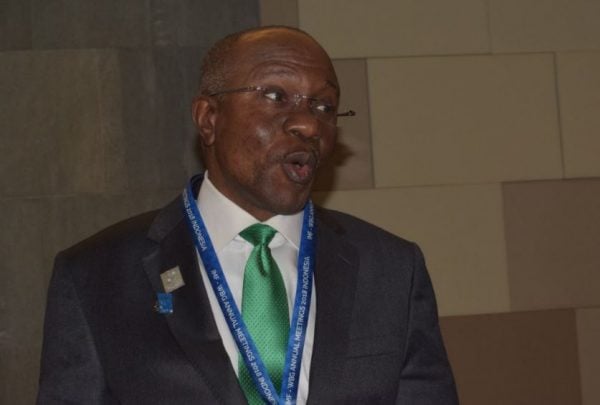Godwin Emefiele
The Central Bank of Nigeria (CBN) says it has not barred commercial banks in the country from investing in treasury bills.
At its May meeting, the monetary policy committee of the bank had agreed that it would release a regulatory framework that would limit the access of banks to bonds and treasury bills.
The bank had also directed deposit money institutions to increase their lending to deposit ratio or suffer a penalty.
A top official in the CBN told ThisDay that while it would like to see less participation of banks in treasury bill auction, banks could still participate.
Advertisement
“We have not barred the banks from investing in treasury bills, otherwise, we would have released a circular to that effect. But, we did what we did, first of all, to let the market know that our interest would be for non-proprietary transactions,” he said.
“That is, investors, both local and foreign, can buy our instruments. But, we would like to see less of the banks coming to use their instruments to come to the primary market to buy treasury bills.
“However, banks and any other person can do secondary market transactions. That does not mean that banks have been barred from the treasury bills market. The CBN will use its discretion to see whether it is a general auction or a special auction that the banks can participate in.”
Advertisement
The bank had said it wanted to focus more on lending rather than investing in government securities.
“Unfortunately, we have observed that rather than banks focus on granting credit to the private sector, they tend to direct their focus mainly on government securities,” Godwin Emefiele, the CBN governor, said at the end of the May MPC meeting.
“The monetary policy committee has frowned at that and has directed the management of the central bank to put in place regulation to restrict the banks from unlimited access to government securities.
“This country badly needs growth and for us to achieve growth, those whose primary responsibility it is to provide credit must be seen to perform that responsibility.”
Advertisement
Add a comment







